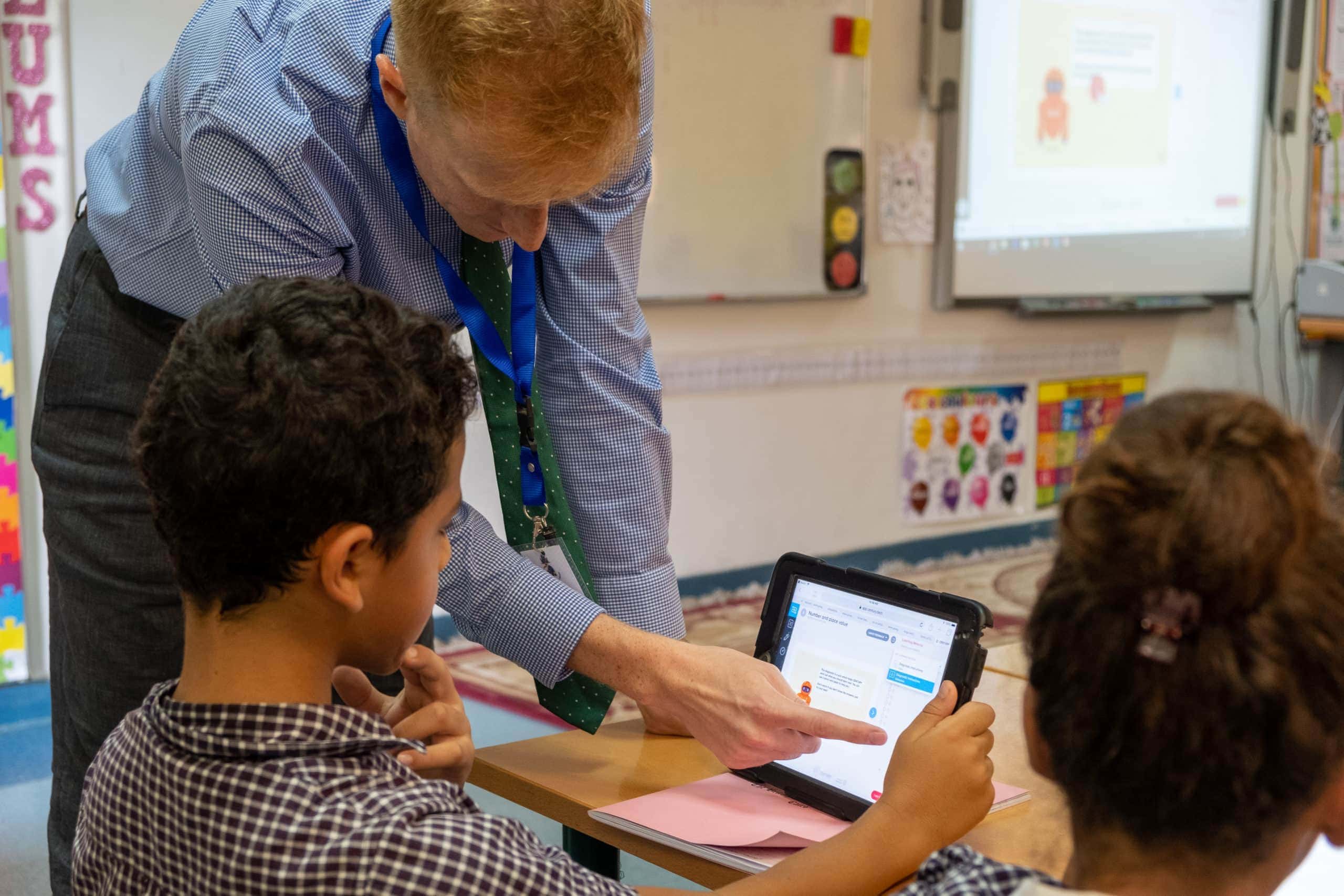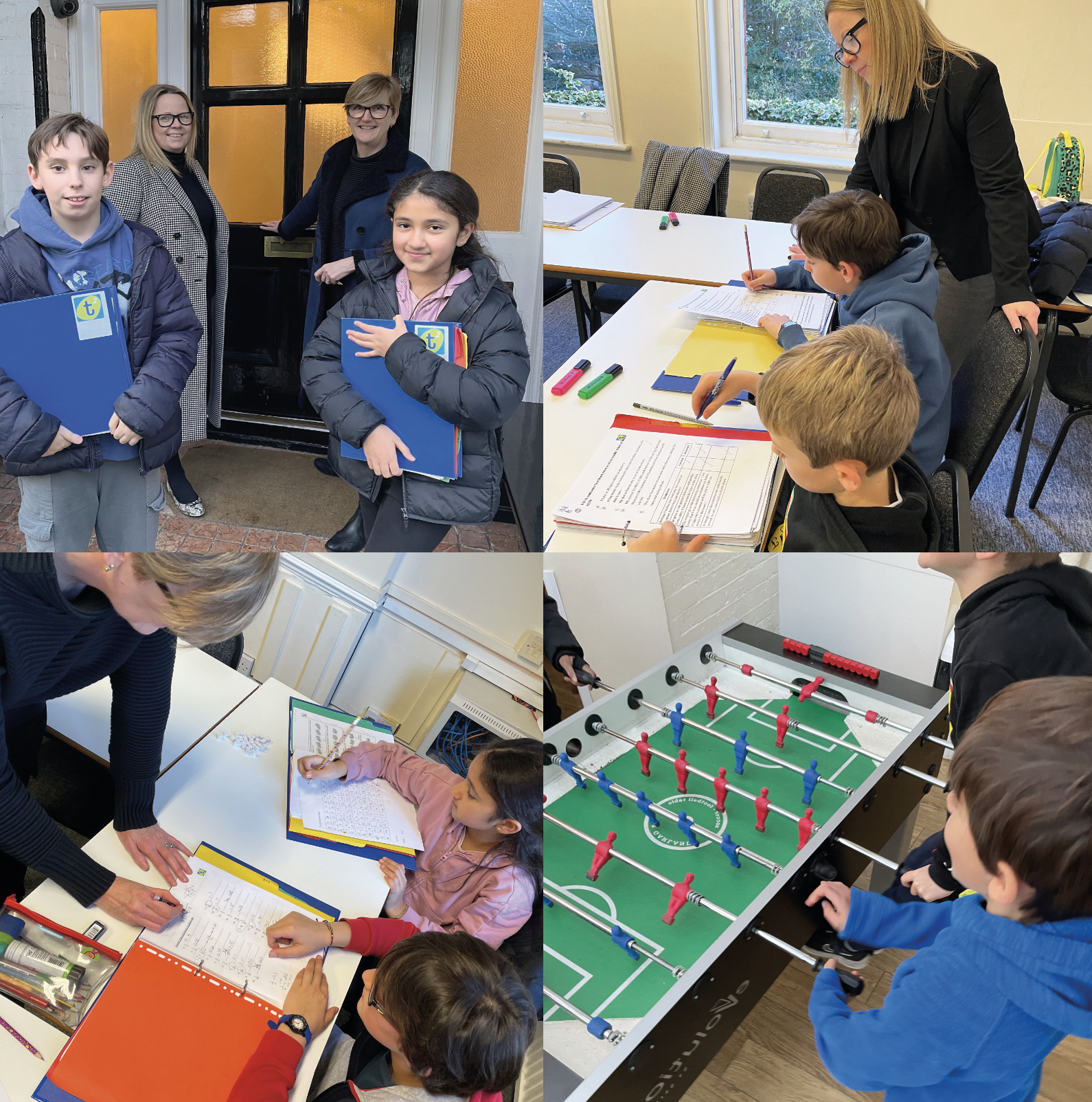Estimated reading time: 8 minutes
We are proud to be working with schools in over 50 countries around the world, from Germany to Brazil to Japan. For many of the learners at the international schools that use CENTURY, English is an additional language – and for some, it is one that they may not have been comfortable using at all before starting at their school. In this blog post, we share some of the innovative ways that these schools use CENTURY as part of a wider strategy to support English as an additional language learners.
To support students transitioning away from ESL lessons
When children who are not confident using English arrive at an international school, they may initially be required to attend ESL lessons in place of mainstream lessons to help them develop their language skills.
The goal is to get these students' language skills to a level where they can attend mainstream lessons as soon as possible; however, even once this transition has taken place and a learner has made a lot of progress, they may still encounter some difficulties in terms of understanding subject-specific vocabulary and keeping up with the pace of explanations.
On top of this, they may no longer have the benefit of having a trained ESL teacher by their side to support them. For classroom teachers, providing these students with support without drawing unwanted attention to them can be a difficult balancing act.
To aid this transition, some schools have shared with us that they find it helpful to assign these learners nuggets on the topics they cover in lessons, particularly those with tricky vocabulary, even if they were not planning on assigning them to the whole class.
This allows students to replay parts of the video, watch it at a slower speed, and press pause to take note of and later translate keywords that they do not recognise. This can be particularly helpful for students who do not feel comfortable speaking up in class if they struggle with the subject-specific vocabulary, as they will be able to look back at the nugget outside of lesson time.
"With regards to English, CENTURY is especially helpful for students who are starting to transition away from our ESL program into our regular English lessons. These students still have a lot of work to do in order to be able to follow the content in lessons, and CENTURY allows them to keep working on their language skills independently. So it has been quite valuable in that regard."
- Vjeko Kovac, School Principal, International School Neustadt
As a pre-learning tool
Commonly referred to as ‘flipped learning’, this strategy isn’t exclusively used to support non-native speakers, but it can help students to feel more confident contributing during lessons if they have already had a chance to look at the vocabulary and concepts they will need to participate ahead of time.
While the evidence on the effectiveness of flipped learning in general is still debated, there has been research that suggests that it can be particularly beneficial for learning English as a foreign language.
For example, a 2017 study compared the performance of students in a flipped and non-flipped EFL classroom across three major tasks and found that the students in the flipped classroom achieved higher average scores in all three tasks. The instructor also reported that they were more engaged in the learning process.
"The idea of what we refer to as 'before teaching', often called 'flipped learning', is that children sometimes need to be pre-taught certain things before you actually teach a topic. This helps to provide students with the baseline knowledge they need to be successful in lessons, which will lessen the burden on their working memory, ultimately helping them to retain more of what is learned in the long term.
To put this into practice using CENTURY, teachers set nuggets both inside and outside of the classroom that introduce content they will be covering in upcoming lessons. If they know they're going to be talking about using complex sentences in English, for example, they might find it really important for certain students to be pre-taught what a complex sentence actually is using a nugget on the platform beforehand.
This would ensure that by the time the teacher teaches that lesson, those students already have the basic knowledge and vocabulary they need to understand it, without the teacher having to spend hours creating any extra resources for them."
- Ben Cooper, Primary Principal, GEMS Wellington Academy - Al Khail
To differentiate discreetly
If you are concerned about a student or a group of students’ ability to follow along with the vocabulary in a lesson, you can create a separate class within CENTURY specifically for students who are finding the language aspect of lessons difficult.
These students will not be able to see that they have been placed in this class, but using your Teacher Dashboard, you will be able to pay close attention to their data to see if and why they’re struggling.
By looking at their responses to ‘exact answer’ questions - and not just their scores - you will also be able to see if they are making spelling mistakes rather than misunderstanding a concept, and you can use this information to reassure them that they are on the right track.
You can also assign these students alternative work if necessary. For example, if you know that a child struggled with a particular concept covered in the class, you could assign them a nugget on this topic while other students work through their personalised pathway.
“Teachers can use CENTURY to assign nuggets for learners that are of the right level for them. So the platform makes it really easy for teachers to always have something appropriate to assign each student to work on that will help those learners to build up their vocabulary.”
- Vjeko Kovac, School Principal, International School Neustadt
Click here to learn more about how we can support your international school.
This blog post explores how some of our existing customers have chosen to use CENTURY. We do not currently offer English as a Second Language courses, and our courses have not been specifically designed to support non-native English speakers.





